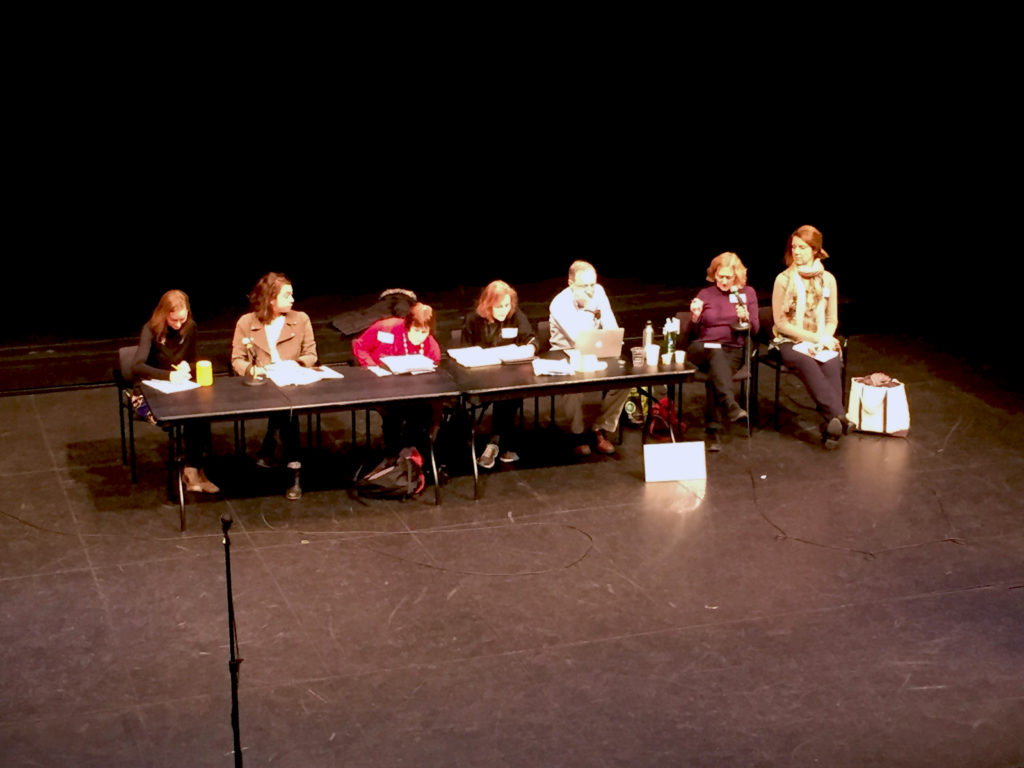By Zach Carmosino, news correspondent
Environmental activists from around New England met at Emerson College Saturday to discuss issues facing environmental justice.
Mass Green Summit attendees listened to a panel discussion about local progress on environmental issues and participated in workshops on how to better promote their cause through civic engagement. Mass Green, the organization hosting the event, was founded in 2015 for activists in New England campaigning to protect the environment.
One of the speakers was Debbie Wolozin, 61, a clinical psychologist who successfully campaigned to restrict plastic water bottle sales in her town of Sudbury, Massachusetts.
Wolozin said that Sudburry is one of 175 “green communities” in Massachusetts, referring to a policy passed under the administration of former State Gov. Deval Patrick awarding grants to communities that cut municipal energy use by 20 percent over a period of five years.
“It’s a state law that has categories that towns can meet… Once they become a green community they can get money,” she said.
Wolozin believes that the financial incentives passed under the Patrick administration have been effective in making Massachusetts more sustainable.
“People don’t reference it enough, but Deval Patrick was brilliant in doing this. And it has targets, like a 20 percent goal by 2025,” Wolozin said. “It makes a town think green because they’re trying to think, ‘How can we get more money? What can we do that makes our community greener?’ And they’re happier about it, too.”
Alongside Wolozin was environmental consultant Melissa Gough, 49. Gough said the new law has been met with resistance, particularly among small business owners.
“To be honest, there’s nothing we can do to stop someone from selling boxed water, for example, except for pressure from people who voted,” Gough said.
Despite opposition, Gough remains optimistic about making Massachusetts more sustainable.
“I think another 60 communities in the next two years will have plastic water bottle restrictions,” she said. “I’d like it to take on the same knock-down effect as plastic bags.”
Panelist and Boston resident Claire Miller, 32, is the lead community organizer at Toxics Action Center and believes clean air and water are essential to a healthy environment. She said civic activism counterbalances the threatening influence of large corporations on the environment.
“We have to train ourselves in civic activity to be extra active. Unfortunately, these skills are not taught in our high schools,” she said. “At Toxic Activism Center, we’re working hard to give everybody the tools they need to be truly engaged citizens.”
During her workshop, Miller articulated the challenges presented by the conflicting interests of news outlets and activists. She said activists must understand that what is important to them is not necessarily always worthy of news coverage.
“I think one of the biggest challenges is that activists are extremely passionate,” she said. “We believe that what we’re working for is extremely important. It doesn’t make it newsworthy.”
Though relations between the two parties are sometimes strained, Miller believes environmental justice activism is alive and well, and is something journalists should be covering closely.
“I try to give the journalists I’m working with as much ammo as I can so that they can see what we’re working for is not just the facts, but what the vast general public believe and are excited about,” she said.
Wolozin said that other communities can replicate the progress made in Sudbury, and environmental protection can inspire civic pride, much as it did in her town.
“They’re trying to think, ‘what can we do that makes our community greener?’ And they’re happier about it, too,” she said.








![A demonstrator hoists a sign above their head that reads, "We [heart] our international students." Among the posters were some listing international scientists, while other protesters held American flags.](https://huntnewsnu.com/wp-content/uploads/2025/06/image12-1200x800.jpg)
